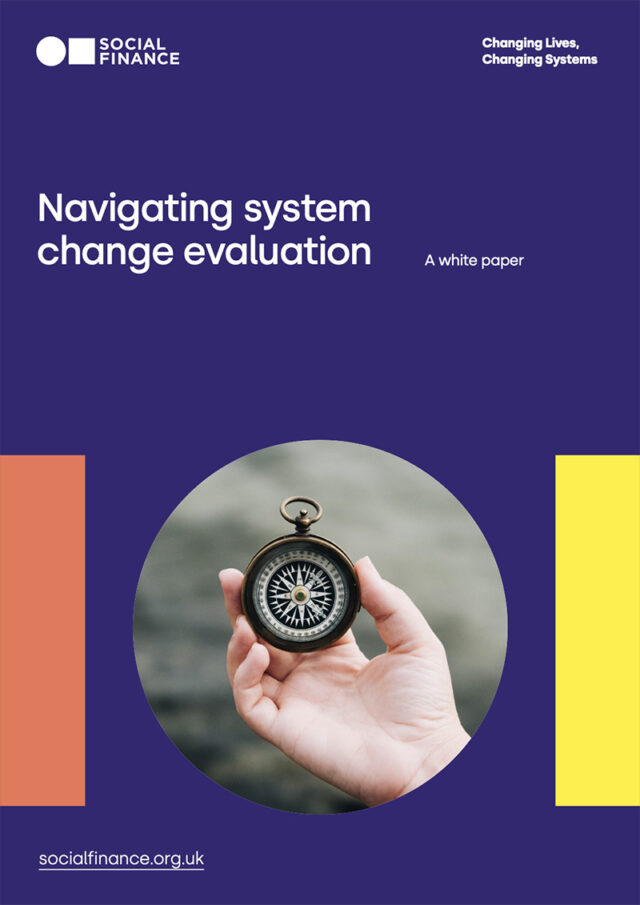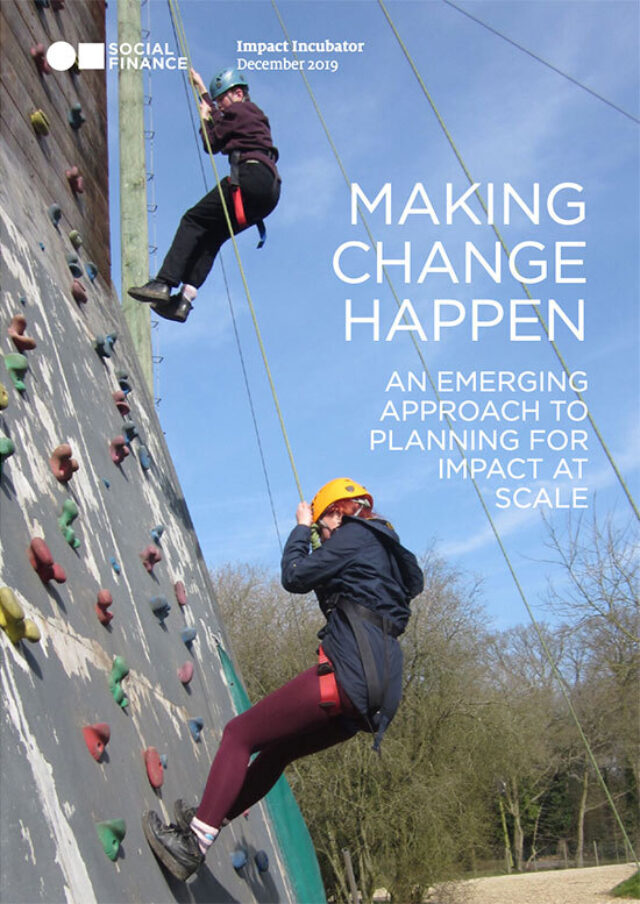
Strategy, research and design
Thinking big
Social Finance can help you look at the big picture, understand root causes and find solutions. We work with partners to build and remodel systems and services to improve the lives of people facing social injustice. Our approach to systems change and design is iterative and human-centred, involving people with lived experience at every stage.
We start by asking the big questions: What will it take to change systems to get better outcomes for those at the sharp edge of social injustice? How can we realise a fairer world where together we unleash the potential of communities?
Diving deep
We then conduct explorative research to gain a deeper understanding of systemic problems, and collaborate with our partners, service users, and communities to design, prototype, incubate and scale our solutions. Combining forces with our strategy, data and digital insight teams, we not only deliver research and design, but also build new technology and shift existing systems to get better outcomes for society.
Once we’ve identified what needs to change, we seek evidence and think strategically about how to achieve this. We:
- Examine whole systems to understand how they work and how things interconnect.
- Look beyond the brief for other underlying problems that might need to be addressed.
- Try to understand existing barriers and what levers can be pulled to enable change.
- Work to understand internal culture and relationships.
- Identify other changes happening in society which we could work with.
- Work and think across social issues – drawing on what we’ve learned in other areas.
- Identify the building blocks needed to enable lasting change.
How we conduct our research
We take time to ensure we talk to the right people, find and investigate the right data and ask the right questions. We:
- Keep an open mind and question assumptions.
- Blend quantitative and qualitative evidence.
- Conduct in-person research, run round tables and start public conversations.
- Rigorously analyse data.
- Work with service users, frontline workers and everyone working in a system to find ways forward that align with people’s real needs.
Human-centred design and participatory research
Learning and adapting based on feedback from users, our human-centred design practice takes an iterative, open approach to the development of end-to-end services, products and tools. We’ve shown the value of this approach in developing products such as Family Context, a tool to support social workers make more informed decisions for children and their families, and Track My Request, a text notification service to keep residents updated on their requests for adult social care.
We’re also pioneering participatory co-design approaches to our policy and systems change work across a range of areas, such as improving access to education for children and young people at heightened risk of school exclusion and improving employment support for people with severe mental illness.
Insights through partnership
We also form longer-term learning partnerships, bringing system, strategic and evaluative thinking together to generate meaningful insights to guide action.
Across the lifetime of a programme, we collaborate with programme leads, frontline teams, and government partners to:
- Offer the critical inquiry, system thinking and investigative capacity to unlock change around complex social issues.
- Learn at multiple levels: service/project, network/portfolio, or system as a whole.
- Turn real-time and meaningful insights into actions, rather than waiting on ‘after the fact’ recommendations from an evaluation.
- Keep partners connected and accountable to their core mission, and challenge them on the best way to achieve it.
- Help ‘get under the hood’ of how things are working to unblock obstacles and enhance strengths and accelerate your impact.

